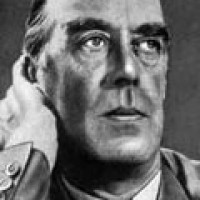Ruttman (born on December 28, 1887) was a German avant-garde cinematographer. He studied architecture in Zurich and painting in Munich. In the beginning of his career he worked as a graphic designer and painter, and wrote articles about film and film theory. He painted his last painting in 1918 and afterwards turned to film. He began his career in film with the series of short films
Lichtspiel Opus I-IV (1921-1925) in which he experimented with new forms of film expression. Films from the
Opus series made him so famous that Julius Pinschewer, Fritz Lang and Lotte Reiniger contacted him and wanted to work with him. With Pinschewer he made a series of commercials (
Das Wunder, 1925), and for Lang, together with Lotte Reininger, he made the dream sequence in the film
Die Niebelungen: Siegfried (1924). With Lotte Reiniger he collaborated on her oldest and first famous feature animated film
The Adventures of Prince Achmed (Die Abenteuer des Prinzen Achmed, 1926). Afterwards he made the film
Berlin, Symphony of a Big City (Berlin: Die Sinfonie der Großstadt, 27), his oft imitated masterpiece. Later he turned to experimenting with sounds and made
Melody of the World (Melodie der Welt, 1929), the first German sound feature film. Afterwards he made
Weekend, a film without any images in which he edited sounds instead of pictures. He also worked on
End of the World (La fin du monde, 1931) by Abel Gance and made
Steel (Acciaio, 1933) based Luigi Pirandello’s novel. When the Nazis came to power, he did not emigrate. Beginning in 1934 he worked as a director for UFA and made commercials and propaganda films.

